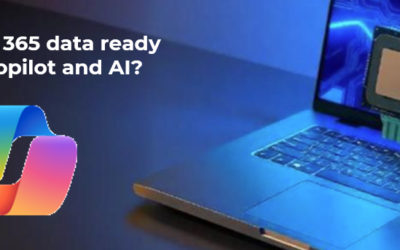Practical AI Consulting for NZ business
AI That Solves Real Problems
AI is no longer just about innovation — it’s about everyday productivity. Whether it’s summarising documents, sorting data, or powering virtual agents, we help you apply AI where it makes the most sense.
Find the right AI approach. For you
With so many AI options, you need independent advice from people who understand your business
Practical AI Advice: How do you decide what AI is right for your business?
ChatGPT, Copilot, custom AI models, workflow automation, data analysis tools – the options are endless. Kinetics is different because we don’t sell any one particular AI solution. We help you find what works for YOUR business. We’ll work with you to understand your business challenges, budget, and risk tolerance. Then you can make the right business decision, confident you are Making IT Work for YOU.
Are you drowning in these challenges?
❌ Teams spend hours on repetitive tasks
❌ Customer service can’t keep up with demand
❌ Data exists but insights don’t
❌ Manual processes bottleneck growth
❌ Productivity plateau despite growing workload
But you’re also thinking…
![]() “Where do we even start with AI?”
“Where do we even start with AI?”![]() “What if we choose the wrong solution?”
“What if we choose the wrong solution?”![]() “How do we keep our data secure?”
“How do we keep our data secure?”![]() “Will our team actually use it?”
“Will our team actually use it?”![]() “What’s the real ROI going to be?”
“What’s the real ROI going to be?”
Our Proven AI Implementation Process
From exploration to measurable results
Discover Your AI Opportunity
We start with a free workshop to understand your business challenges and identify where AI can create the most value. No sales pitch – just honest advice about what makes sense for you.

Design Your Business Case
Together we’ll map out specific use cases, expected benefits, costs, and timelines. You’ll have a clear picture of ROI before committing to anything.

Start Small, Learn Fast
We begin with a pilot or prototype to validate the approach. This lets you see real results quickly and adjust before scaling up.

Implement with Confidence
Roll out your AI solution with proper governance, security, and change management. Your team gets the training and support they need to succeed.
Track your results and continuously improve. AI is a journey, not a destination – we help you keep getting better.
Using 365?
Have you tried
Microsoft Copilot?
Work with Kinetics to elevate productivity and creativity with Copilot for Microsoft 365.
Meet Ben Fish, from our consulting division “Kambium”
Ben’s been working with Copilot since its inception – here’s his summary of the opportunity for you and your organisation.
AI is happening NOW
Get in touch to find out how we can help you make use of AI tools in a controlled and managed way.
Remember, the key lies in understanding your specific business needs and tailoring AI solutions accordingly. Schedule a free workshop now.
Webinar Replay: AI in Action: How one business saved a day a month
AI Builder in Action: How One Business Saved a Day a Month Learn how one business uses AI tools to save one day of effort each month Use AI models to automate processing of documents, images, and emails Design AI prompts to supercharge your workflows Key Topics:...
AI Digest: February 2025
The AI race steams on in February. Our Kambium Consulting colleagues are tracking the world of AI and keeping us abreast. Here's the summary for Feb 2025 in case you missed it. Firstly the adoption in sales is compelling. That makes sense. Sales people have to...
AI’s big stories over summer
A month is a long time in the world of AI, so we thought we’d share some of the AI news highlights. Deepseek The big highlight has to be the emergence of Deepseek. Whether it builds on OpenAi and others, or whether it is entirely new is being wrangled over, but the...
Where do you think AI will take us in 2025? Do your picks match ours?
Artificial Intelligence has been the IT and business topic of 2024. “What’s next, how can we use it, should we be afraid of it” have been the big questions. Now we’re in a new year, and what are the new trends we need to ready for?
Webinar Replay: Practical AI – Turning your 365 data into a Copilot AI resource
Webinar - Practical AI - Turning your 365 data into a Copilot AI resource Harness the power of your data to achieve effective AI outcomes.Webinar Recap: Introduction: Scott Fennell welcomed attendees and introduced the webinar's focus on Microsoft Copilot and AI...
The Implications of Using ChatGPT (free gen-AI tools): An instructive Case Study from Australia
Recent news from Australia In a recent investigation, the privacy regulator in the state of Victoria has imposed a ban on the use of ChatGPT within a government department. This case highlights the dual nature of Generative AI (GenAI) tools, which offer significant...
Is your 365 data ready for Copilot and AI? (Christchurch free event)
Don't miss out - Limited Places Reserve your seat today Date: 22 October (Tuesday) Time: 8.45 coffee ahead of a 9.00am start Location: Kinetics Group, Level 1, 11 Leslie Hills Drive, Riccarton, Christchurch 8011Join us for an interactive free workshop AI and Microsoft...
What’s the latest new AI features in Copilot?
In today's data-driven world, it's essential to streamline how we interact with business data, documents, and presentations. We're excited to introduce several new features in Copilot that will transform your workflow and enhance productivity across Excel, Word, and...
Why does my organisation need an AI Usage Policy?
In the rapidly evolving landscape of technology, businesses of all sizes are increasingly integrating artificial intelligence (AI) tools into their operations. From enhancing customer service to optimising workflows, AI offers a plethora of benefits that can drive...
Deepfakes: Understanding and Detecting AI-Generated Media
The line between what's real and what's not can be super thin, and nothing shows this more than deepfakes. Deepfakes are incredibly realistic digital fakes made using artificial intelligence (AI) that can show people saying or doing things they never actually did....










